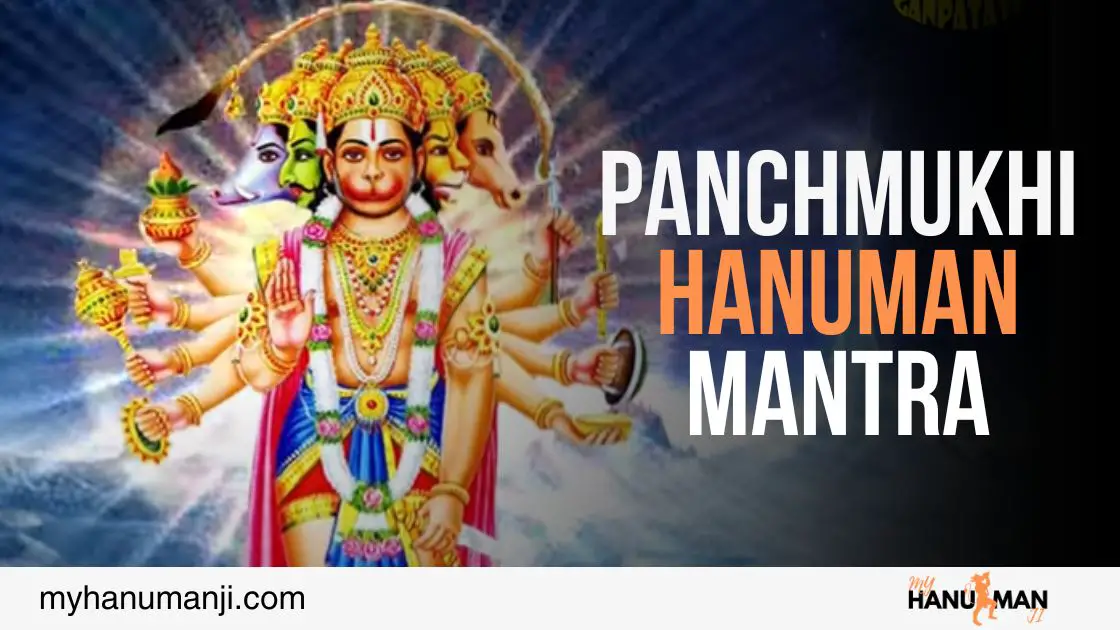While Hanuman is often depicted as a symbol of love, loyalty, and righteousness, it is important to recognize that Hanuman, like any other deity or mortal, is not devoid of human emotions. There is a common question is Hanuman ever angry. So, we will explore the concept of anger in the life of Hanuman, delving into instances where he displayed this emotion and the underlying reasons behind it.
The Nature of Hanuman

Before we delve into the topic of Hanuman’s anger, it is crucial to understand his nature and character. Hanuman is widely regarded as a compassionate and benevolent deity, embodying virtues such as humility, selflessness, and devotion. He is often depicted as a symbol of strength and protection, revered by millions for his unwavering loyalty to Lord Ram.
However, it is important to remember that Hanuman is not a perfect being devoid of human emotions. Like any other deity or mortal, he experiences a range of emotions, including anger, which may arise under certain circumstances. It is through the exploration of these emotions that we gain a deeper understanding of Hanuman’s character and the lessons he imparts.
Instances of Hanuman’s Anger

While Hanuman is predominantly known for his calm and composed demeanor, there are a few instances in Hindu mythology where he displayed anger. These instances highlight the complexity of his character and provide valuable insights into the circumstances that triggered his anger. Let us explore some of these instances:
1. Burning of Lanka
One of the most well-known instances of Hanuman’s anger is when he set Lanka, the kingdom of Ravana, ablaze. After locating Sita, Lord Ram’s wife, in Lanka, Hanuman unleashed his fury upon the city, causing widespread destruction. This act of anger was a direct response to the injustice inflicted upon Sita and the atrocities committed by Ravana.
It is important to note that Hanuman’s anger in this instance was not driven by personal vengeance or a desire for destruction. Instead, it was a manifestation of his deep love and loyalty towards Lord Ram and his commitment to rescuing Sita from captivity. Hanuman’s anger served as a catalyst for change, igniting a chain of events that ultimately led to the downfall of Ravana and the restoration of justice.
2. Encounter with Ahiravana
In another instance, Hanuman’s anger was directed towards Ahiravana, a powerful demon who kidnapped Lord Ram and his brother Lakshman. Hanuman embarked on a daring mission to rescue them from the clutches of Ahiravana. During the battle, Hanuman’s anger fueled his determination and strength, enabling him to defeat the demon and save Lord Ram and Lakshman.
Once again, Hanuman’s anger was not driven by personal animosity or a thirst for violence. It was a righteous anger, fueled by his love and devotion towards Lord Ram and his unwavering commitment to protect him and his brother. Hanuman’s anger in this instance served as a catalyst for heroic action, showcasing his unwavering loyalty and dedication.
3. Protecting Dharma
Hanuman’s anger also surfaced when he encountered individuals who threatened the principles of dharma (righteousness) and justice. In various instances, Hanuman displayed anger towards those who sought to disrupt the balance of order and morality. His anger in these situations was a reflection of his commitment to upholding righteousness and protecting the innocent.
It is important to note that Hanuman’s anger was never driven by personal ego or selfish motives. Instead, it was a righteous anger, born out of his deep understanding of dharma and his unwavering dedication to upholding it. Hanuman’s anger in these instances served as a reminder that even the most compassionate and benevolent beings can be moved to anger when faced with injustice and the violation of moral principles.
The Lessons from Hanuman’s Anger

The instances of Hanuman’s anger provide valuable lessons for us as devotees and individuals navigating the complexities of life. They remind us that anger, when channeled appropriately and in alignment with righteous principles, can be a powerful force for change and justice. Hanuman’s anger was never driven by personal ego or a desire for revenge but was rooted in his unwavering devotion, love, and commitment to righteousness.
These instances also teach us the importance of discernment and self-control when it comes to anger. While anger can be a natural and valid response to certain situations, it is essential to channel it in a constructive manner, ensuring that it aligns with principles of righteousness and does not cause harm to oneself or others.
Furthermore, Hanuman’s anger serves as a reminder that even the most revered and divine beings are not immune to experiencing anger. It humanizes Hanuman and allows us to connect with him on a deeper level, understanding that he too faced challenges and emotions similar to our own. So, by so far i i wish you got the answer of Is Hanuman ever angry, and know the backstory of that.
Conclusion
Hanuman, the revered monkey god in Hindu mythology, is not devoid of human emotions. While he is predominantly known for his love, loyalty, and righteousness, he also experiences anger under certain circumstances. Hanuman’s anger is rooted in righteousness and serves as a catalyst for change and justice. By understanding the nature of his anger and the lessons it imparts, we can gain a deeper appreciation for the complexity of his character and the virtues he embodies.
Through the exploration of Hanuman’s anger, we are reminded of the power of emotions and the importance of channeling them in a constructive manner. Hanuman’s anger teaches us the value of discernment, self-control, and the pursuit of righteousness. As devotees and individuals, we can learn from Hanuman’s example and strive to embody these virtues in our own lives.
So let us embrace the multifaceted nature of Hanuman, recognizing that even the most revered and divine beings can experience anger. By doing so, we can deepen our connection with Hanuman and draw inspiration from his unwavering devotion, strength, and commitment to righteousness.




